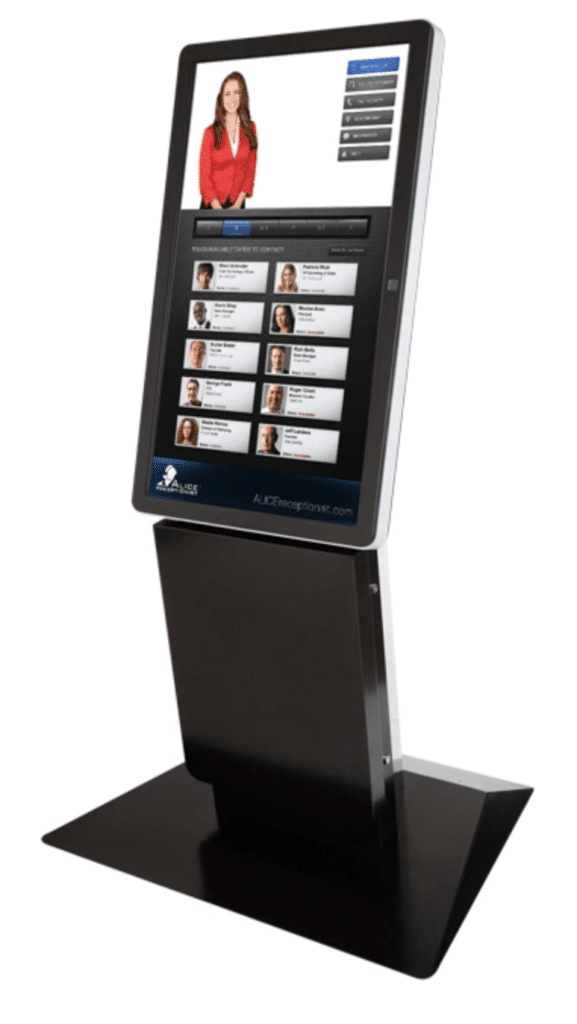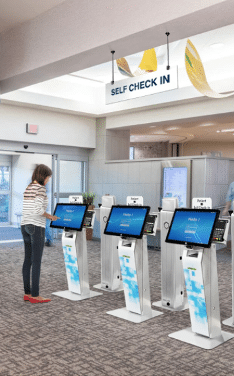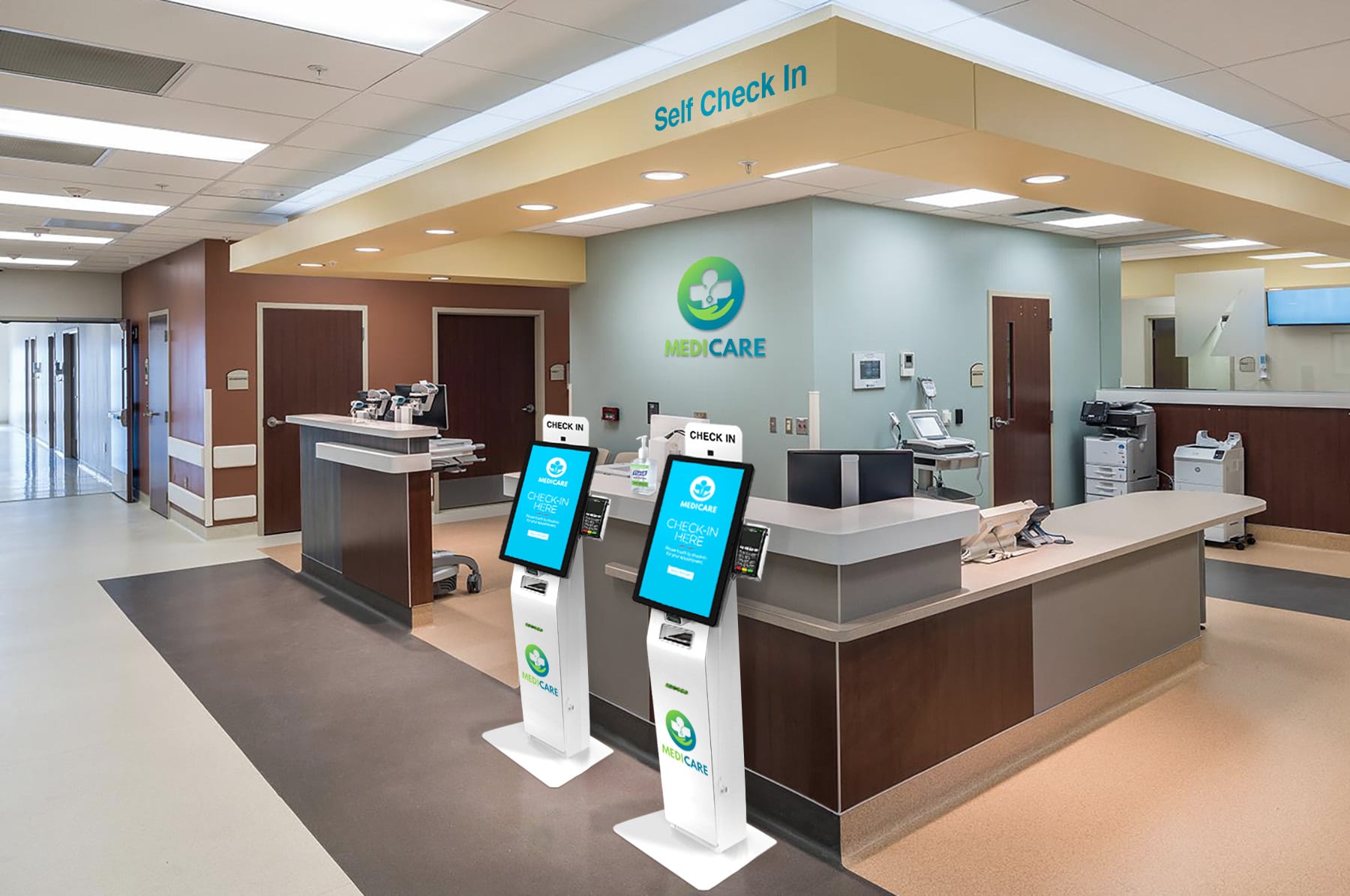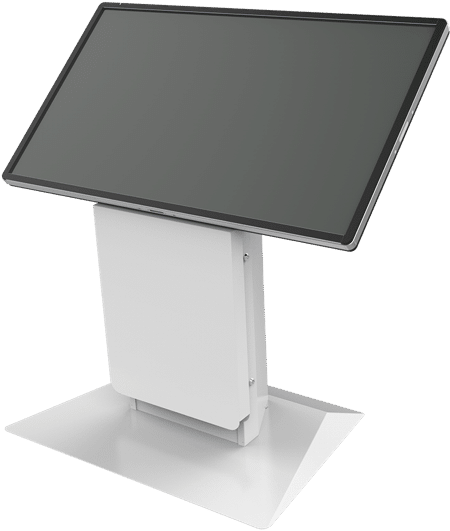Recently, restaurants, healthcare facilities and the hospitality industry have faced extreme labor challenges. From staffing shortages and high turnover rates to the increasing costs of labor, these industries are under constant pressure to maintain high levels of service while managing operational challenges.
The solutions—virtual reception and self-service kiosks. These are technological innovations that were available pre-pandemic but have now emerged as key solutions to addressing these labor challenges.
Understanding Labor Challenges
Many services have faced labor challenges over the last couple of years. Not having access to reliable labor has impacted operational efficiency, customer experience, and profitability. Understanding these challenges is critical for delivering effective solutions.
The Role of Virtual Reception
Virtual reception solutions are a technology-driven approach to managing guest interactions and administrative duties that traditionally require a human. This labor solution technology uses advanced software and sometimes remote human operators to handle tasks like answering calls, scheduling appointments, and providing customer assistance. They were initially popular in technology start-ups, healthcare, and hospitality, but quickly demonstrated value across a broad range of industries. Its early adoption was helped with the promise of seamless customer service and significant cost savings.

Benefits of Addressing Labor Challenges
Cost-efficiency for Administrative Roles
Probably the most compelling benefit of virtual reception is the ability to get administrative assistance at a fraction of the cost. This role can handle incoming calls, scheduling appointments, and basic customer inquiries.
Ability to Provide 24/7 Customer Service
Virtual reception solutions can operate around the clock, ensuring that businesses never miss a call or meeting outside of traditional business hours. With virtual reception, support can be provided any time of day or night. This is game-changing for industries like healthcare and hospitality where timely responses are critical to maintaining customer satisfaction.
Reducing the Workload for Existing Staff
By automating routine and repetitive time-consuming tasks, virtual reception solutions give existing staff the ability to focus on more complex, higher-value tasks. This, in turn, leads to more efficient use of human resources, where employees can spend their time on tasks that require a human touch, like personalized customer service or strategic decision-making. While this improves operational efficiency, it also enhances employee satisfaction and could potentially reduce turnover.
Virtual reception solutions are a strategic response to some of the most pressing issues faced by businesses today. As businesses continue to navigate labor shortages and the demand for high-quality customer service, virtual reception technologies are a key tool in maintaining a competitive environment and operational resilience.
The Advantages of Self-Service Kiosks
By integrating hardware and software to perform specific tasks, self-service kiosks have revolutionized the customer service landscape. This labor solution technology is a convenient, efficient, and user-friendly solution that meets the modern consumer’s expectations for speed and autonomy for several front-line service tasks.
They provide several benefits including the following:
Reducing Wait Times and Streamlining Processes: Self-service kiosks significantly reduce wait times and streamline the check-in and ordering processes. By allowing customers to manage their interactions directly, these kiosks can handle multiple transactions simultaneously, reducing bottlenecks and improving the overall flow of service. This efficiency not only enhances the customer experience by minimizing frustration associated with waiting but also allows businesses to serve more customers in less time.
Labor Reallocation: Deploying self-service kiosks can lead to desirable labor reallocation. By automating routine transactions, businesses can reduce their reliance on staff for these tasks, allowing for a more strategic allocation of human resources. Staff members can be redirected to roles that require a personal touch or higher-level skills, such as customer service, problem-solving, or upselling. This not only optimizes labor costs but also enhances the quality of service, as employees are able to focus on areas where they can add the most value.

Leveraging Data for Personalization: One of the most significant advantages of self-service kiosks is their ability to collect and utilize customer data to offer personalized experiences. Kiosks can gather information on customer preferences and behaviors, which can be analyzed to tailor future interactions. For example, a kiosk can recommend products or services based on a customer’s past selections or offer customized promotions and discounts. This level of personalization not only improves customer satisfaction but also fosters loyalty, as customers feel recognized and valued on an individual level.
The advantages of self-service kiosks extend beyond operational efficiencies and include enhanced customer satisfaction and the ability to offer personalized experiences. As businesses across various industries continue to seek innovative solutions to address labor challenges and meet evolving consumer expectations, self-service kiosks are a powerful tool in achieving these objectives.
Virtual Reception vs. Self-Service Kiosks
Complementing Traditional Staff Roles
Virtual reception solutions and self-service kiosks are often viewed through the lens of technological advancement vs. human employment. However, these technologies are not necessarily replacements for traditional staff roles but rather valuable compliments.
Virtual reception solutions can manage routine inquiries and administrative tasks, freeing up staff to focus on providing higher quality, personalized customer service where it matters most. Similarly, self-service kiosks handle transactional interactions efficiently, allowing staff to dedicate their efforts to areas requiring human empathy, problem-solving skills, and personal touch.
By automating standardized tasks, businesses can allocate their human resources to areas that significantly impact customer satisfaction and loyalty. This strategic reallocation not only improves operational efficiency but also enriches the employee experience, potentially leading to increased job satisfaction and reduced turnover.
Choosing the Right Solution
Deciding between virtual reception solutions, self-service kiosks, or a combination of both depends on a business’s specific needs, customer expectations, and operational challenges. Here are some guidelines to help make this decision:

Assess Customer Interaction Needs: If your business frequently handles a high volume of routine inquiries or appointments, virtual reception solutions may be ideal for managing these efficiently. On the other hand, if your operation involves transactions or check-ins, self-service kiosks could offer the convenience and speed your customers desire.
Consider the Customer Experience: Think about the type of experience you want to provide. For a more personalized touch, virtual receptionists can offer an experience with human interaction. For businesses wanting to streamline operations and give customers full control over their experience, self-service kiosks might be the answer.
Evaluate Operational Goals: Consider the potential for revenue generation (e.g., self-service kiosks can upsell or cross-sell) and the type of efficiency gains (e.g., 24/7 availability with virtual receptionists).
Understand Your Staffing Constraints: In industries facing staffing shortages, virtual reception solutions can provide a stopgap for customer service roles, while self-service kiosks can minimize the need for frontline staff in transactional interactions.
Hybrid Option: For many businesses, a hybrid approach that leverages both virtual reception solutions and self-service kiosks may offer the best of both worlds, ensuring that all aspects of customer interaction and operational efficiency are optimized.
The decision should be driven by your business model, customer needs, and long-term strategic goals. Both virtual reception solutions and self-service kiosks offer substantial benefits, but their impact is maximized when they are deployed in alignment with the unique characteristics of your operation.
Future Outlook
Virtual reception solutions and self-service kiosks have the opportunity for evolution which will be driven by advancements in technology and changing consumer expectations. These innovations have the potential to reshape customer service and operational efficiency across various industries, offering more options for addressing ongoing labor challenges.
Virtual Reception Solutions: Future developments in virtual reception are likely to leverage artificial intelligence (AI) and natural language processing (NLP) to deliver more sophisticated and human-like interactions. As AI becomes more adept at understanding and processing complex customer inquiries, virtual receptionists will be able to handle a greater range of tasks with more accuracy and personalization. In addition, integration with other business systems, such as CRM and ERP software, will enable seamless service experiences, ensuring that virtual receptionists can provide contextually relevant information and support to customers.
Self-Service Kiosks: The next generation of self-service kiosks is expected to incorporate more advanced technologies, such as biometric authentication, augmented reality (AR), and personalized digital interfaces. These features will not only enhance the security and efficiency of transactions but also provide customers with richer, more engaging service experiences. Additionally, the integration of IoT (Internet of Things) devices with self-service kiosks could enable real-time inventory updates, dynamic pricing, and personalized product recommendations, further enriching the customer experience.
Evolving to Address Labor Challenges
The evolution of virtual reception solutions and self-service kiosks are promising options for addressing labor challenges across industries. By automating a wider range of tasks and providing more nuanced customer interactions, these technologies can alleviate the pressure on staff to allow businesses to optimize their workforce deployment and focus on strategic growth areas.
For industries facing acute labor shortages, such as healthcare and hospitality, the capabilities of these technologies can assure uninterrupted service delivery, maintaining customer satisfaction and operational continuity even during staffing crises. In addition, as these solutions become more integrated into business operations, they will offer valuable insights into customer behavior and preferences, enabling businesses to stay ahead of market trends.
What’s Next?
The future of virtual reception solutions and self-service kiosks is bright. As businesses continue to navigate labor challenges, these technologies offer a strategic path forward, not only in terms of cost management and operational efficiency but also in enriching the guest experience and fostering innovation. The path ahead is about transforming the way services are delivered and experienced across industries. Olea works with a few different partners to deliver virtual reception solutions and several different partners to deliver self-service kiosks for healthcare, government, food and beverage ordering and a number of other industries. If you’d like to discuss your project, click here.


